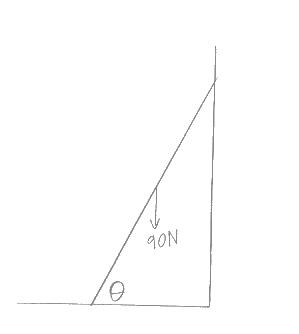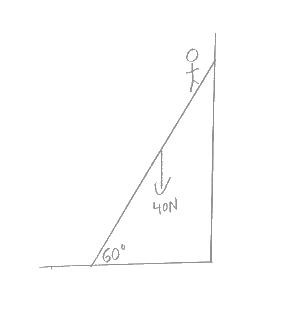Now that you have read the section on ladder problems and examined some sample problems, try some of the following problems below. To guess an answer, simply click on the text that says guess answer then type the number you believe to be the answer in the block that will pop up. Pay attention to significant figures as if they are not correct, the answer will be wrong. Also make sure you include the units of your answer. To see the solution for a problem, click on show solution and you will be taken to the solution.

A 5.2 m ladder weighing 90.0 N rests against a frictionless wall as shown in the above diagram. If the coefficient of static friction is 0.61 and the weight of the ladder acts at its center, find the value of the angle marked in the diagram.

A 6.0 m long ladder weighing 40.0 N (exerted at its center) is positioned against a frictionless wall as shown in the above diagram. A man with a mass of 68 kg climbs 5.2 m up the ladder. What coefficient of static friction is required between the floor and the ladder to keep the ladder from sliding out of place?

A man stands 3.6 m up a ladder with a length of 4.6 m and a weight of 45 N. If the force of friction keeping the ladder in equilibrium is 400.0 N, what is the mass of the man?
Now you have finished my page's section on ladder problems. Feel free to check out the other sections of my page on other aspects of Rotational Dynamics. For more practice with this topic, you should see your textbook.
